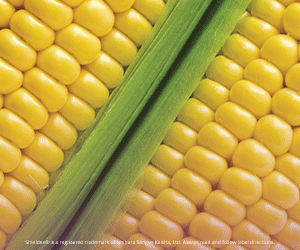Research roundup
FIND OUT WHAT’S NEW IN THE WORLD OF RESEARCH
Research indicates effective herbicides for field horsetail control
Kyra Lightburn
Got field horsetail? The most effective combination of herbicides to fight it will depend on the crops you have planted, says research from the University of Guelph.
Professor Peter Sikkema, Department of Plant Agriculture, found that Broadstrike RC plus MCPA, when used in combination, applied early post emergence proved to be the most effective method of control for horsetail in corn trials conducted in farmers’ fields in 2013 and 2014.
Meanwhile for soy, the combination of Roundup plus Dual plus Broadstrike applied preplant worked best. And for wheat, MCPA alone proved sufficient.
Field horsetail, although not an extremely widespread problem in Ontario, can impact yield, says Sikkema. Research like his is important to investigate the best herbicide options to control such localized weed issues, which might otherwise be overlooked by herbicide producers who focus their research on the most widespread and pervasive problems.
To date, farmers are limited in what herbicides they can use to control field horsetail. Most notably, glyphosate on its own does not provide commercially acceptable control.
It’s all in the details, says Sikkema. MCPA, for instance, can be injurious to corn if it is sprayed too late in the corn’s life. “Spraying at the four leaf stage, or earlier, is recommended to minimize the potential for crop injury,” he says. “At the eight leaf stage there can be substantial corn injury and yield loss.”
Funding for Sikkema’s research was provided by Grain Farmers of Ontario.
SPARK writer Kyra Lightburn is sponsored by the OAC Alumni Foundation. •
Increasing levels of corn residue on no-till soybean
Anna Wassermann
In northern temperate regions where soybeans and corn are a common rotation, elevated levels of corn plant residue are perceived to hinder no-till soybean production in some fields.
Before no-till production begins, corn residue typically undergoes decomposition — the process by which it breaks down and gets removed from the soil surface. However, recent corn yield improvements are contributing to higher residue levels, which take more time to decompose.
University of Guelph MSc. graduate Michael Vanhie investigated the factors promoting an increase in corn residue, as well as the mechanisms behind the recent decline in no-till soybeans.
He says higher corn yields are not strictly to blame for elevated levels of residue. The lack of residue incorporation in no-till results in slower decomposition compared to conventional till, leaving behind more residues on the soil surface at the time of soybean planting. He says this effect is likely amplified by the incentive for earlier soybean planting, which further compresses the time available for decomposition.
In addition, Vanhie also investigated the mechanisms by which higher levels of corn residue affect no-till practices. He determined that elevated levels of residue exacerbate the problem of cool, moist soils, which likely delays soybean emergence, increases seedling mortality and reduces soybean nodulation.
“Practices of no-till soybean have long been encouraged for environmental benefit,” says Vanhie. “But if increasing corn residue hinders no-till soybean production, it’s likely that farmers will turn to conventional tillage systems and all environmental benefits will be forgone.”
Also involved in this research were Professsors Bill Deen, John Lauzon, and David Hooker.
Funding for this research was provided by the Ontario Graduate Scholarship program, NSERC, and the OMAFRA-U of G Partnership. •
———————————————————
Research Roundup is provided by members of SPARK (Students Promoting Awareness of Research Knowledge) at the University of Guelph’s Office of Research. For more information, contact a SPARK writer at 519-824-4120, ext. 52667. •







